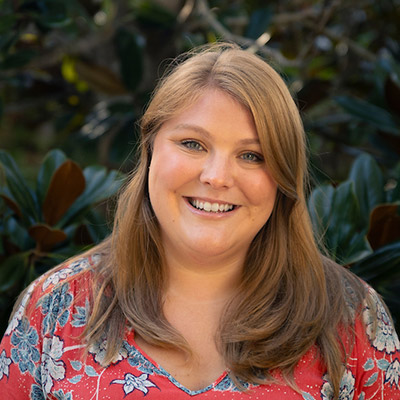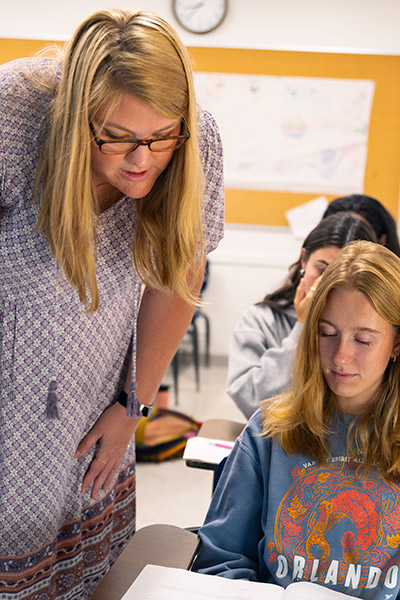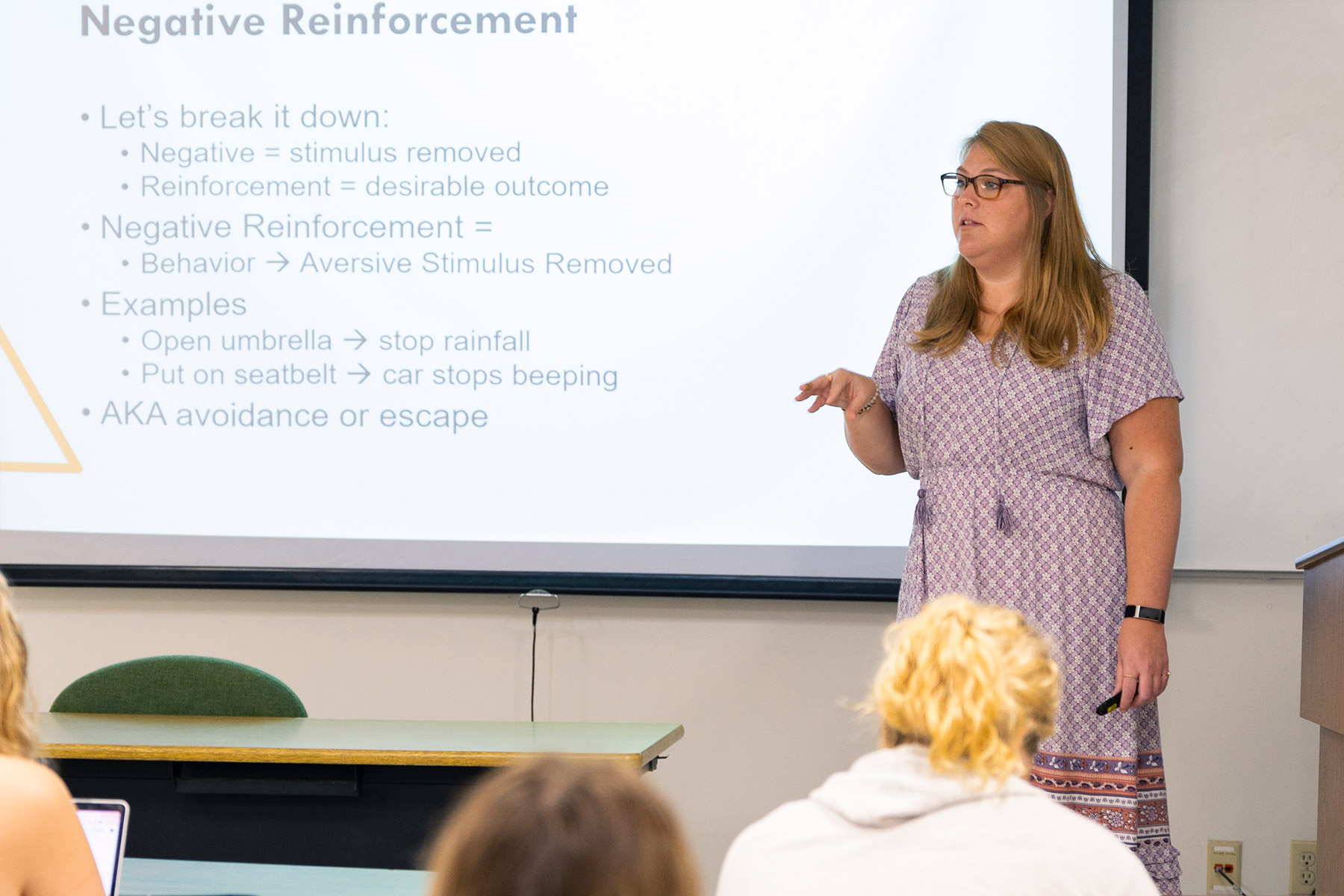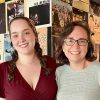Katherine Dyer, Ph.D., grew up in the picturesque village of Pinehurst, North Carolina, home of the historic Pinehurst Resort, a frequent site of U.S. Open golf championships. But since she was a child, she had her sights set on Orlando.
“I wanted to be a dolphin trainer at SeaWorld since about age 5, so I went to the University of North Carolina Wilmington to major in marine science,” explains Dyer, who is beginning her first year as an assistant professor of psychology at Eckerd College. Her mentor at UNCW encouraged her to study animal behavior. “Training dolphins is a psychological process,” Dyer adds. “So I switched over to psychology. And through that I discovered a passion for the field in general. And I ended up switching my career goals.”
She earned her Bachelor of Arts degree in psychology with highest honors at UNCW, which is where she also earned her master’s degree in psychology. She received her Doctor of Philosophy degree in psychological science from Kent State University.
Dyer’s research interests include investigating the role of the brain in various behavioral and cognitive processes, such as the learning and memorizing of sequences of behavior. Prior to coming to the College, she was a psychology instructor at Kent State. Her research there explored how rats learned and remembered patterned sequences of behavior, including how various drugs influenced the learning and memorizing of these behaviors through their impact on neurological mechanisms.

Katherine Dyer, Ph.D.
“One of my goals is to understand how psychopharmaceutical drugs—drugs that are used to treat mental illness—affect our behavior internally and externally. This research involves interviewing and testing subjects who were prescribed these drugs to see what side effects the drugs may have on their behavior. For instance, is there an increase or decrease in specific levels of cognitive abilities, such as learning or [memorizing]?”
Dyer, who is teaching Introduction to Psychology as well as Biopsychology during the Fall 2023 semester, plans to establish a laboratory at Eckerd that will investigate human brain activity and function related to various behaviors. “And give the students an opportunity to experience the neuroscience side of psychology,” she adds.
“I also hope that what the students are learning in the classroom is more than something they have to remember for an exam. I hope their participation in my courses leads to a better understanding of themselves and those around them, and that they become more well-rounded, empathetic individuals by understanding why people are the way they are.”
As for regrets about giving up a career at SeaWorld, there are none.
“When I see my students’ eyes light up when they understand something … that’s been such a gift for me,” she says. “Eckerd College has exceeded all my expectations. I could not have asked for a better job.”

Katherine Dyer encourages students like first-year Samantha Sweet (right) to experience the neuroscience side of psychology.













